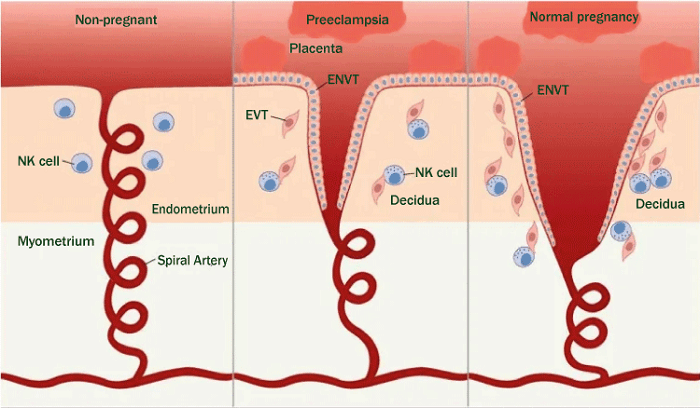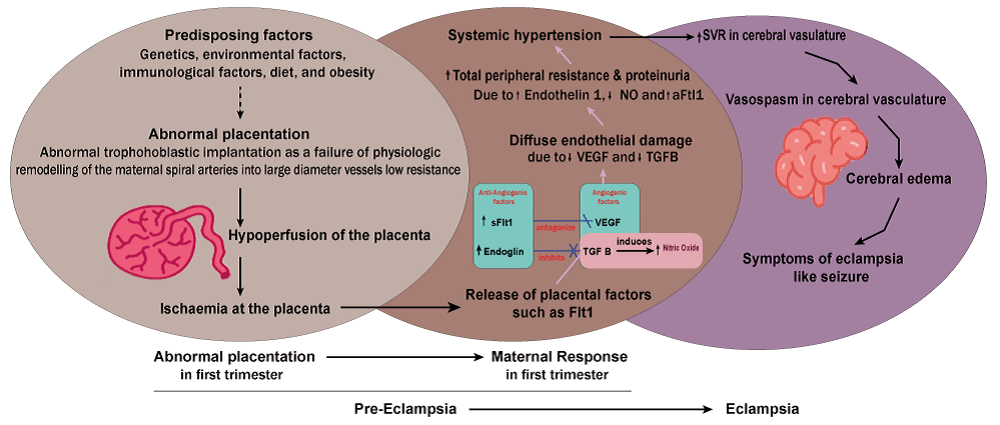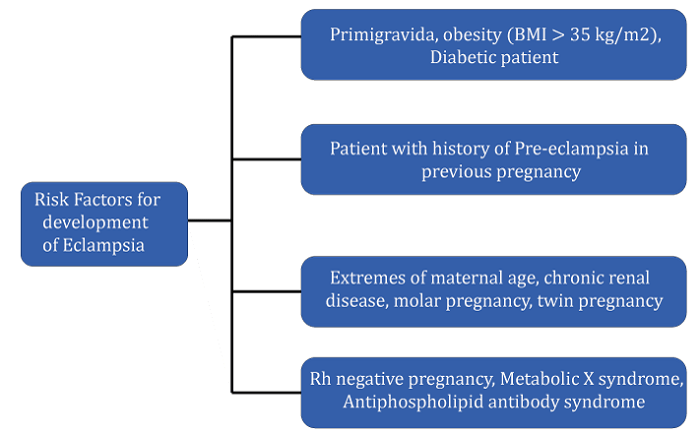Eclampsia DefinitionAn uncommon but deadly illness known as eclampsia develops in the second part of pregnancy. Eclampsia is a term used to describe seizures in pregnant women with preeclampsia. High blood pressure, dizziness, fuzzy vision, and convulsions are all signs of eclampsia. 
Eclampsia: What is it?An uncommon yet deadly consequence of preeclampsia is eclampsia. Preeclampsia is a pregnancy disease that causes elevated blood pressure and urine protein levels in pregnant women. Eclampsia occurs when a pregnant person with preeclampsia has seizures (convulsions). Seizures are periods of uncontrollable trembling, perplexity, and disorientation. Usually, after the twentieth week of pregnancy, eclampsia develops. Less than 3% of patients with preeclampsia experience it, making it uncommon. Eclampsia necessitates urgent medical attention and might lead to difficulties during pregnancy. What Distinguishes Preeclampsia from Eclampsia?Preeclampsia that is severe enough to produce seizures is called eclampsia. Although it may occur without preeclampsia symptoms, it is regarded as a complication of preeclampsia. These seizures may put the expectant mother in a coma or result in bewilderment and disorientation. It may sometimes cause a stroke or death. Preeclampsia is often treated before it develops into eclampsia. The only treatment for both ailments is giving birth to your child. Throughout your pregnancy, your obstetrician will keep a careful eye on you and could even prescribe medicine. What are the Eclampsia Risk Factors?Preeclampsia is the main risk factor for eclampsia. Preeclampsia patients often don't progress to eclampsia. An increased risk of developing eclampsia may also exist if:
What are the Eclampsia Warning Signs?Many individuals may have warning symptoms before an eclamptic seizure. Among these indications are the following:
What Signs and Symptoms Indicate Eclampsia?The following are eclampsia's most typical symptoms:
Why Does Eclampsia Develop?Preeclampsia often leads to eclampsia. Your blood vessels are under strain due to high blood pressure (caused by preeclampsia). Your brain might be swollen, which could cause seizures. Your chances for eclampsia might be increased by genetics and food. Tests and Diagnosis
Eclampsia is diagnosed in what ways? Based on the existence of a seizure, your obstetrician makes the diagnosis of eclampsia. They will do an examination, blood tests, and routine blood pressure checks. They also request urine testing to check for elevated protein levels in the urine.
Control and Treatment
How is ectopic pregnancy treated? Giving delivery is the most effective therapy for eclampsia. Inducing labor is often the best option if the fetus is 37 weeks or more along the pregnancy. If you and the fetus are in good health, you may still deliver vaginally. For eclampsia during pregnancy, your doctor could recommend drugs like: Infusions of magnesium sulfate or anticonvulsant drugs are used to prevent seizures. Medicine for lowering blood pressure Corticosteroids support and strengthen the fetus's lungs throughout development. What do Eclampsia Complications Entail?People who have eclampsia are more likely to:
PreventionHow can I lower my chance of getting eclampsia? You may be more susceptible to developing preeclampsia and eclampsia due to several factors, some of which are beyond your control. Your chance of having eclampsia may be decreased by receiving treatment for preeclampsia. A healthy lifestyle, early medical attention, and attendance at all prenatal checkups may lower your risk. If you are at risk, starting low-dose aspirin in the first trimester may help reduce your chance of developing preeclampsia. Perspective / PrognosisIs it possible to recover from eclampsia? Yes, the majority of eclampsia sufferers recover after giving birth. You may take the following actions to hasten your recovery:
Does eclampsia usually end in death? No, it doesn't always result in death. Most patients will recover with timely care. How does eclampsia impact my unborn child? The fetus receives oxygen, blood, and nourishment from its placenta. Eclampsia may harm the fetus but shouldn't have any long-term health effects. Either preeclampsia or eclampsia may impact the placenta's functionality. Additional negative consequences include:
When should I schedule a Visit with my doctor? If you have a first seizure while pregnant, go to the emergency unit. Other signs of pregnancy that need medical care include:
Although uncommon, eclampsia may be quite dangerous during pregnancy. You may avoid developing eclampsia by receiving immediate medical attention for preeclampsia. Regular blood pressure checks and urine and blood tests, which are part of prenatal visits, may help identify eclampsia-precursor signs. Let your obstetrician know if you develop eclampsia symptoms, such as confusion, headaches, impaired vision, or convulsions.
Next TopicWavelength Definition
|
 For Videos Join Our Youtube Channel: Join Now
For Videos Join Our Youtube Channel: Join Now
Feedback
- Send your Feedback to [email protected]
Help Others, Please Share










